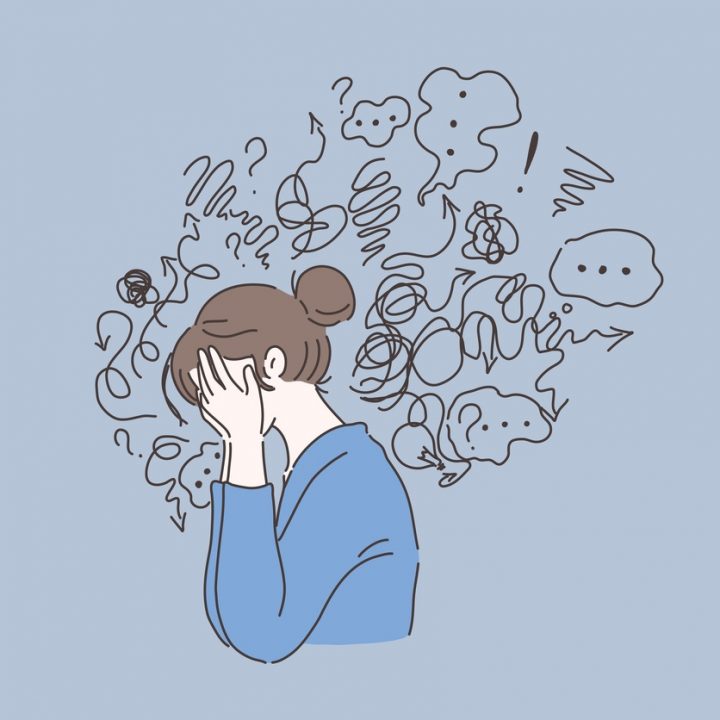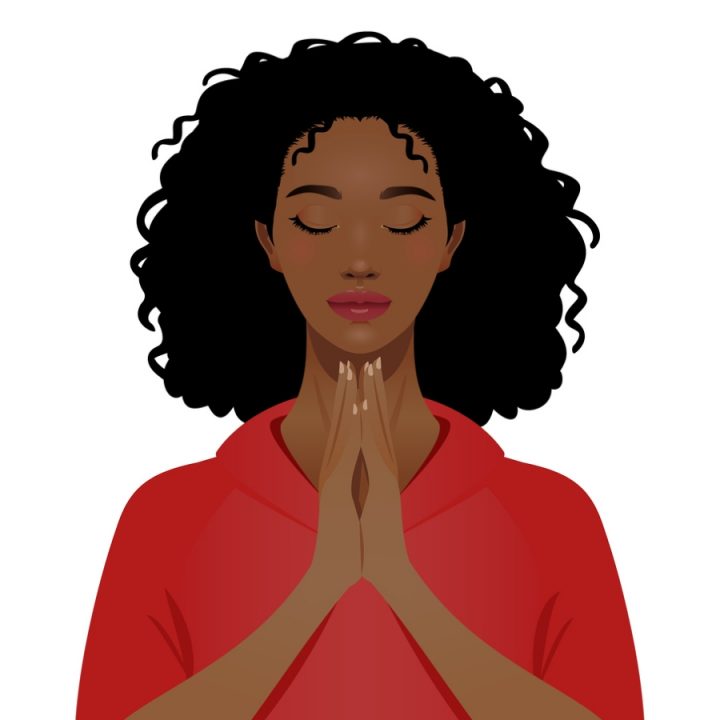The views expressed in our content reflect individual perspectives and do not represent the authoritative views of the Baha'i Faith.
Have you ever felt paralyzed by your own emotions — like your body shut itself down to shield you from your own unguarded negative thoughts? That’s how my colleague Nasim Mansuri, a 24-year-old college student living in Massachusetts, says she used to feel. But with the help of prayer and therapy, Nasim says she was able to heal.
“I’ve always had a lot of anxiety,” Nasim says. “I’ve always been an anxious kid worried about what other people [thought] and things like that. During high school, that really got worse.” When she was 16, her anxiety attacks became dissociative.
Nasim experienced abusive and manipulative relationships, which, sadly, isn’t unusual. According to the Centers for Disease Control and Prevention, 26% of women and 15% of men in the United States experienced some form of violence — everything from being called names or stalked to being physically assaulted — within a relationship before turning 18.
“My way of protecting myself from intrusive, upsetting thoughts was to just kind of shut down physically,” she says. “I was trapped inside my body. I couldn’t move. I would lie down because I felt so anxious that I couldn’t stay standing or walking.”

Nasim says that during those moments, she was no longer aware of her surroundings and would “generally spiral over the same thoughts over and over and over again.” She felt depleted of energy and felt she might begin causing herself physical harm. That’s when she realized that she needed to get help.
Abdu’l-Baha, the authorized interpreter of the Baha’i writings and the son of Baha’u’llah, the prophet and founder of the Baha’i Faith, said:
There is but one power which heals — that is God. The state or condition through which the healing takes place is the confidence of the heart. By some this state is reached through pills, powders, and physicians. By others through hygiene, fasting, and prayer. By others through direct perception.
Because Baha’is believe in the harmony of science and religion, Nasim turned to prayers and therapy for healing.
Healing Through Therapy
Baha’u’llah said, “If one is sick, let him go to the greatest physician.” Once Nasim started seeing a psychologist, she learned different grounding techniques to manage her anxiety and become more aware of her body during her dissociative episodes.
Nasim says that once you find the right therapist, you can “build a safety net” where you can say what’s on your mind and feel heard. Her psychologist helped her acknowledge that she had a real problem, and it wasn’t that she was just feeling stressed and had to get over it.

“I had to acknowledge that I had trauma,” Nasim says. “I had a lot of pent up sadness that I hadn’t properly communicated — or when I had communicated, I hadn’t been validated by anyone.” But when her psychologist told her, “I’m sorry that happened to you,” Nasim says she felt seen and heard and thought, “I’m allowed to feel this way.”
Healing Through Prayer
“Ultimately, what I think kind of helped bring it all together was really the [Baha’i] writings,” Nasim says. At the time, she was reading the book “Summons of the Lord of Hosts” which is a compilation of letters Baha’u’llah wrote in 1868 to the kings and rulers of the world about his position as a messenger of God. One quote, in particular, made her feel hopeful, safe, and empowered. Baha’u’llah wrote:
Say: Naught is seen in My temple but the Temple of God, and in My beauty but His Beauty, and in My being but His Being, and in My self but His Self, and in My movement but His Movement, and in My acquiescence but His Acquiescence, and in My pen but His Pen, the Mighty, the All-Praised. There hath not been in My soul but the Truth, and in Myself naught could be seen but God.
Although the quote is describing Baha’u’llah’s position, and not making a statement about individuals, the quote still resonated with her. It helped her develop her own definitions of beauty, self, and acquiescence. Nasim says, “Whenever I would start to feel anxious, I would just repeat it over and over in my head, or out loud depending on what situation I was in, and I think it really helped me center myself and remember that within me is God.”

Repeating this quote to herself, whether on walks, before bed, or in moments of intense anxiety, helped Nasim remind herself that traumatic experiences do not define her identity as a spiritual being. She says she believes this quote is reflective of “what we aspire to be — empty vessels just carrying God’s power — in whatever human way we can.” A prayer Baha’is often sing asks:
O God! Make me a hollow reed from which the pith of self hath been blown, that I may become a clear channel through which Thy love may flow to others.
Nasim says that prayer and reflection helped her develop strategies to be the person she wanted to be in her life.
With the help of prayer and therapy, Nasim says she no longer experiences extreme anxiety and depression. She can’t remember the last time she had an attack and needed to use one of her grounding techniques, but Nasim knows to turn to them if she needs to — and the quote from Baha’u’llah will always remind her of what she was able to overcome.
















Comments
Sign in or create an account
Continue with Googleor